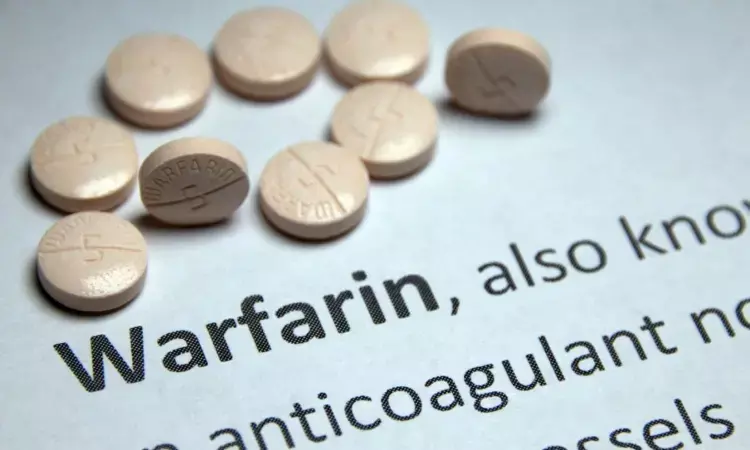- Home
- Medical news & Guidelines
- Anesthesiology
- Cardiology and CTVS
- Critical Care
- Dentistry
- Dermatology
- Diabetes and Endocrinology
- ENT
- Gastroenterology
- Medicine
- Nephrology
- Neurology
- Obstretics-Gynaecology
- Oncology
- Ophthalmology
- Orthopaedics
- Pediatrics-Neonatology
- Psychiatry
- Pulmonology
- Radiology
- Surgery
- Urology
- Laboratory Medicine
- Diet
- Nursing
- Paramedical
- Physiotherapy
- Health news
- Fact Check
- Bone Health Fact Check
- Brain Health Fact Check
- Cancer Related Fact Check
- Child Care Fact Check
- Dental and oral health fact check
- Diabetes and metabolic health fact check
- Diet and Nutrition Fact Check
- Eye and ENT Care Fact Check
- Fitness fact check
- Gut health fact check
- Heart health fact check
- Kidney health fact check
- Medical education fact check
- Men's health fact check
- Respiratory fact check
- Skin and hair care fact check
- Vaccine and Immunization fact check
- Women's health fact check
- AYUSH
- State News
- Andaman and Nicobar Islands
- Andhra Pradesh
- Arunachal Pradesh
- Assam
- Bihar
- Chandigarh
- Chattisgarh
- Dadra and Nagar Haveli
- Daman and Diu
- Delhi
- Goa
- Gujarat
- Haryana
- Himachal Pradesh
- Jammu & Kashmir
- Jharkhand
- Karnataka
- Kerala
- Ladakh
- Lakshadweep
- Madhya Pradesh
- Maharashtra
- Manipur
- Meghalaya
- Mizoram
- Nagaland
- Odisha
- Puducherry
- Punjab
- Rajasthan
- Sikkim
- Tamil Nadu
- Telangana
- Tripura
- Uttar Pradesh
- Uttrakhand
- West Bengal
- Medical Education
- Industry
Warfarin use in cancer-associated thrombosis tied to improved overall survival: Study

USA: A recent study reported warfarin use to be associated with improved overall survival (OS) versus low-molecular-weight (LMWH) in the treatment of cancer-associated VTE. The study findings appear in The Journal of Thrombosis and Haemostasis.
It is already known that LMWH hen compared to warfarin reduces the risk of recurrent venous thromboembolism (VTE) in cancer. However, there is not much information on the survival benefit of LMWH versus warfarin for the treatment of cancer-associated VTE. To fill this knowledge gap, Thita Chiasakul, Harvard Medical School, Boston, MA, USA, and colleagues evaluate the survival benefits of LMWH over warfarin for the treatment of cancer-associated VTE.
Based on Surveillance, Epidemiology and End Results (SEER) and Medicare linked database, the researchers identified Medicare beneficiaries (aged ≥66 years) who were: (1) diagnosed with primary gastric, colorectal, pancreatic, lung, ovarian, or brain cancer; (2) diagnosed with cancer-associated VTE; and (3) prescribed LMWH or warfarin within 30 days. Patients were matched 1:1 using exact matching for cancer stage and propensity scored matching for cancer diagnosis, age, year of VTE, and time from cancer diagnosis to index VTE.
A total of 9,706 patients were included and ones with solid malignancies and cancer-associated VTE were assessed for overall survival (OS) in patients who received LMWH versus warfarin.
The results were found to be:
• Warfarin was associated with a significant improvement in OS compared to LMWH (median OS, 9.8 months versus 7.2 months; HR, 0.86).
• The survival advantage was most pronounced in pancreatic (HR 0.82) and gastric cancers (HR 0.82).
• The observed differences in survival were consistent across subgroups including cancer stage, age, comorbidity burden, and year of VTE.
Beth and the team concluded that "In this population-based study, warfarin was associated with improved OS compared to LMWH for the treatment of cancer-associated VTE." However additional prospective studies with longer follow-up are warranted.
Reference:
doi:10.1111/jth.15519
Medical Dialogues consists of a team of passionate medical/scientific writers, led by doctors and healthcare researchers. Our team efforts to bring you updated and timely news about the important happenings of the medical and healthcare sector. Our editorial team can be reached at editorial@medicaldialogues.in.
Dr Kamal Kant Kohli-MBBS, DTCD- a chest specialist with more than 30 years of practice and a flair for writing clinical articles, Dr Kamal Kant Kohli joined Medical Dialogues as a Chief Editor of Medical News. Besides writing articles, as an editor, he proofreads and verifies all the medical content published on Medical Dialogues including those coming from journals, studies,medical conferences,guidelines etc. Email: drkohli@medicaldialogues.in. Contact no. 011-43720751


